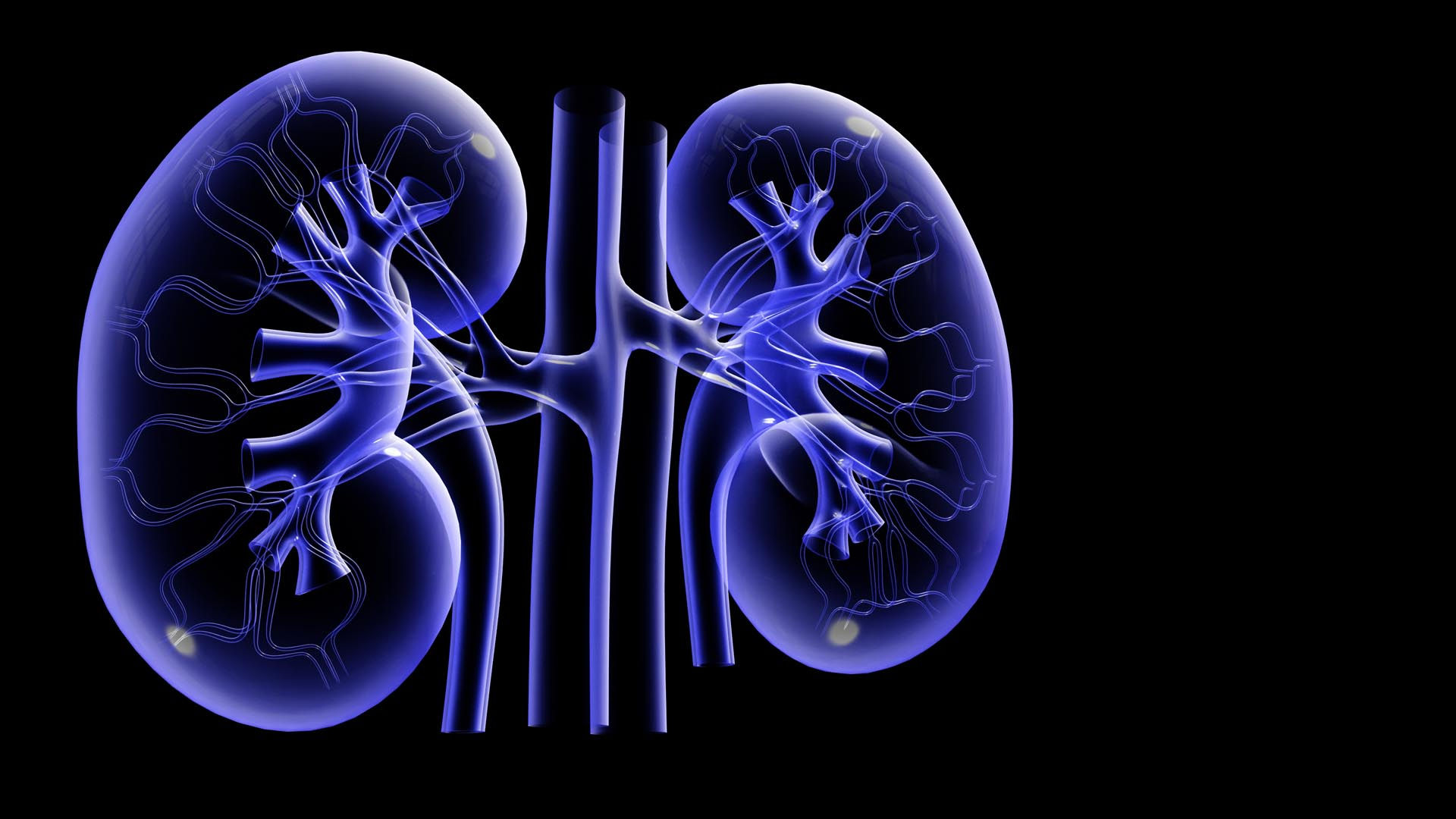

Hypertension

Diabetic Mellitus
Diabetic kidney disease takes many years to develop. In some people, the filtering function of the kidneys is actually higher than normal in the first few years of their diabetes.
Over several years, people who are developing kidney disease will have small amounts of the blood protein albumin begin to leak into their urine. This first stage of CKD is called microalbuminuria. The kidney's filtration function usually remains normal during this period.
As the disease progresses, more albumin leaks into the urine. This stage may be called macroalbuminuria or proteinuria. As the amount of albumin in the urine increases, the kidneys' filtering function usually begins to drop. The body retains various wastes as filtration falls. As kidney damage develops, blood pressure often rises as well.
Overall, kidney damage rarely occurs in the first 10 years of diabetes, and usually 15 to 25 years will pass before kidney failure occurs. For people who live with diabetes for more than 25 years without any signs of kidney failure, the risk of ever developing it decreases.
Symptoms of Diabetic Nephropathy
There are often no symptoms with early diabetic nephropathy. As the kidney function worsens, symptoms may include:
-
Swelling of the hands, feet, and face
-
Trouble sleeping or concentrating
-
Poor appetite
-
Nausea
-
Weakness
-
Itching (end-stage kidney disease) and extremely dry skin
-
Drowsiness (end-stage kidney disease)
-
Abnormalities in the hearts' regular rhythm, because of increased potassium in the blood
-
Muscle twitching
As kidney damage progresses, your kidneys cannot remove the waste from your blood. The waste then builds up in your body and can reach poisonous levels, a condition known as uremia. People with uremia are often confused or comatose.
Hypertension is one of the leading causes of CKD due to the deleterious effects that increased BP has on kidney vasculature. Long-term, uncontrolled, high BP leads to high intraglomerular pressure, impairing glomerular filtration. Damage to the glomeruli lead to an increase in protein filtration, resulting in abnormally increased amounts of protein in the urine (microalbuminuria or proteinuria). Microalbuminuria is the presentation of small amounts of albumin in the urine and is often the first sign of CKD. Proteinuria (protein-to-creatinine ratio ≥200 mg/g) develops as CKD progresses, and is associated with a poor prognosis for both kidney disease and CVD.
As discussed previously, the relationship between CKD and HTN is cyclic, as CKD can contribute to or cause HTN. Elevated BP leads to damage of blood vessels within the kidney, as well as throughout the body. This damage impairs the kidney's ability to filter fluid and waste from the blood, leading to an increase of fluid volume in the blood—thus causing an increase in BP.
Symptoms of Renal Hypertension
Renal hypertension usually causes no symptoms. The narrowing in the arteries can't be felt. Unless it's dangerously high, high blood pressure causes no symptoms either. Symptoms of severely elevated blood pressure include:
-
Headache
-
Confusion
-
Blurry or double vision
-
Bloody (pink-colored) urine
-
Nosebleed
The vast majority of people with renal hypertension never experience these (or any) symptoms. High blood pressure is dangerous partly because there are no symptoms, so organ damage can occur slowly without being recognized.
Renal hypertension can cause chronic kidney disease. This is a slow decline in kidney function. Until the condition is well advanced, chronic kidney disease also causes no symptoms.
Because there are usually no symptoms, a doctor may suspect renal hypertension when someone has uncontrolled high blood pressure despite multiple medications or has unexplained chronic kidney disease.
What is CKD?
Chronic kidney disease describes the gradual loss of kidney function. Your kidneys filter wastes and excess fluids from your blood, which are then excreted in your urine. When chronic kidney disease reaches an advanced stage, dangerous levels of fluid, electrolytes and wastes can build up in your body.
Two main factors which play a role are Diabetic Mellitus and Hypertension.

Interaction of obesity-, metabolic syndrome-, and diabetes-related kidney disease. SNS sympathetic nervous system, RAAS renin–angiotensin–aldosterone system.